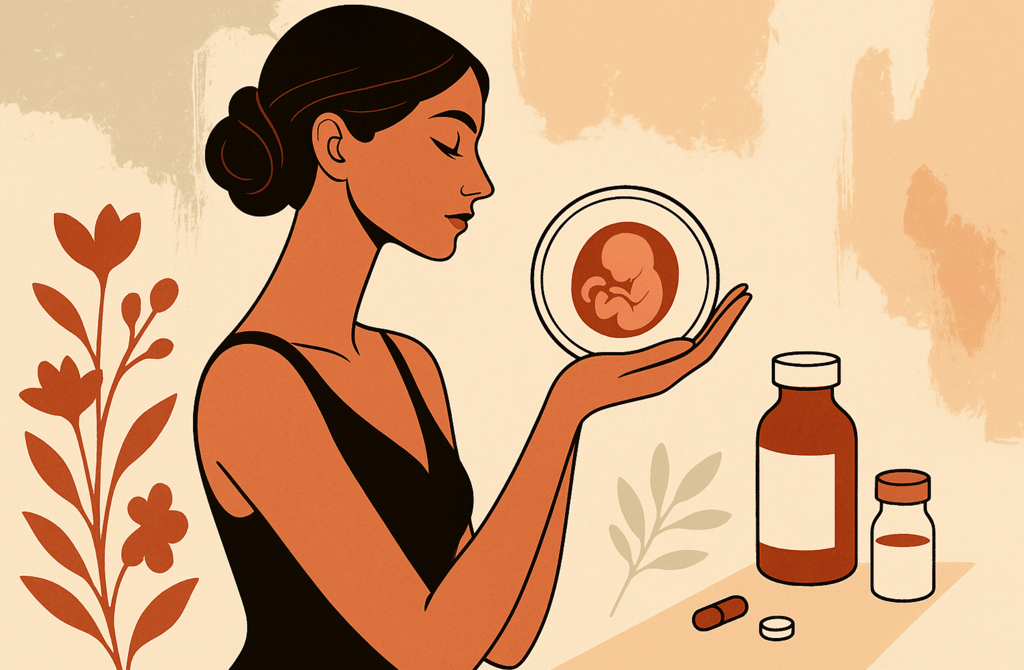Embryo Donation Explained
Embryo donation UK guide, what it means, how it’s arranged, and the emotional and legal implications for donors and recipients.
10/4/20253 min read


When fertility treatment ends with leftover embryos, many couples face a deeply personal decision: what to do with them. Some choose to store, some to let go and others decide to donate their embryos.
Embryo donation is one of the most generous yet emotionally complex paths in assisted reproduction. It’s a process that blends science, ethics, and human connection in equal measure.
What Is Embryo Donation?
Embryo donation involves transferring embryos created by one couple during IVF to another person or couple who cannot conceive using their own eggs or sperm.
For recipients, it can be a chance at pregnancy and parenthood when other routes such as egg or sperm donation haven’t been possible. For donors, it’s often an act of compassion, allowing embryos created from their treatment to help others.
Unlike egg or sperm donation, both the genetic parents’ DNA is already part of the embryo, so the child will not be genetically related to the recipient(s).
How Does It Work in the UK?
In the UK, embryo donation is regulated by the Human Fertilisation and Embryology Authority (HFEA).
Here’s how the process typically unfolds:
Counselling: Both donors and recipients attend mandatory sessions to explore the emotional and ethical aspects of donation.
Screening: Medical and infectious disease tests ensure the embryos are safe to use.
Consent: Written, informed consent is required from all parties. Donors can withdraw consent any time before embryo transfer.
Matching: Clinics may match donors and recipients, or some people donate through known arrangements (for example, to a friend or relative).
Transfer: Once the legal and medical steps are complete, embryos are thawed and transferred to the recipient’s uterus in a standard IVF procedure.
Who Can Donate or Receive Embryos?
Donors: Usually people who have completed their own fertility journey and still have frozen embryos in storage.
Recipients: Those who cannot conceive with their own gametes, often due to premature menopause, infertility in both partners, or repeated failed IVF cycles.
Clinics ensure both sides meet health and suitability criteria. The process is strictly regulated and non-commercial in the UK, donors cannot be paid, but expenses can be reimbursed.
Legal Implications
In the UK, the person (or couple) who gives birth is the child’s legal parent(s), not the embryo donors.
However, the donors’ identifying information is stored by the HFEA. Once the resulting child turns 18, they can request details about their genetic origins, just like those conceived through sperm or egg donation.
Because of this, both donors and recipients must think carefully about long-term implications, especially regarding openness and family conversations.
Emotional Considerations
Embryo donation can stir deep emotions on both sides.
For donors, it may bring comfort to know their embryos have the chance to become loved children but also grief or uncertainty about their genetic connection to a future family.
For recipients, it can bring joy, gratitude, and sometimes a quiet fear: “Will the child feel like mine?”
These feelings are normal. Fertility counsellors play a vital role in helping both parties navigate complex emotions around genetics, identity, and belonging.
The Difference Between Embryo Donation and Embryo Adoption
In the UK, the term embryo adoption isn’t legally recognised only embryo donation. While the emotional experience may feel similar to adoption, the legal framework is entirely different.
Adoption refers to existing children.
Embryo donation involves embryos that have not yet developed into a pregnancy.
Why Some Choose Embryo Donation
Couples often choose donation for reasons such as:
Wanting to give their embryos a chance at life.
Wishing to help others experience parenthood.
Not wanting to discard or indefinitely store embryos.
Recipients may see embryo donation as a way to experience pregnancy and childbirth while still welcoming a genetically unrelated child.
A Growing Conversation
Though still relatively rare in the UK, awareness of embryo donation is growing. As more people undergo IVF, more embryos are stored long-term, leading many families to consider this option.
Ethically, it invites profound reflection: what does it mean to be a parent, biologically, emotionally, or legally?
For many, the answer lies in love, intention, and the decision to give another life a chance to begin.
© 2025. All rights reserved.
